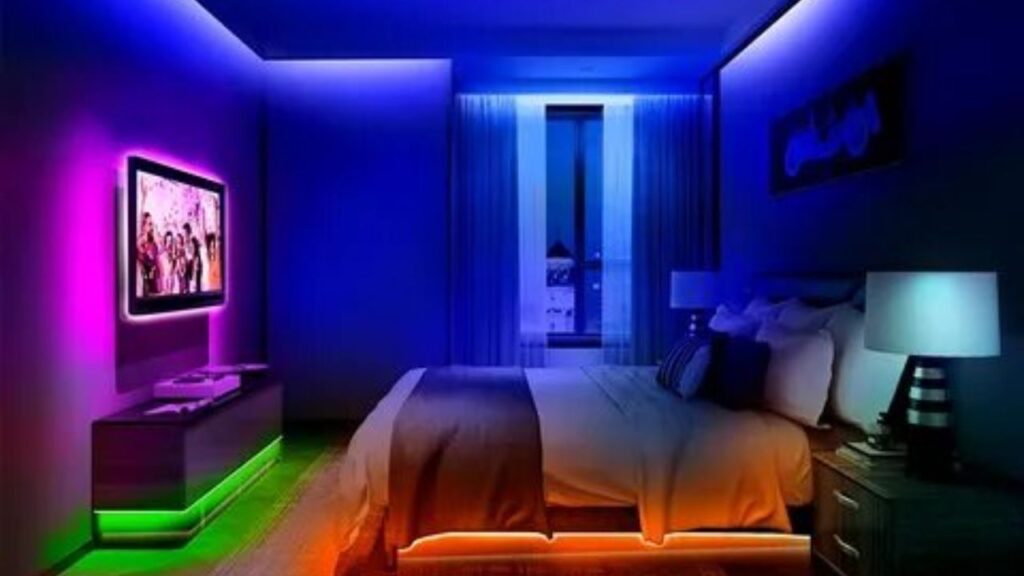Decorative lights can enhance the ambiance of a bedroom, making it more attractive and inviting. However, while they can add a pleasant aesthetic, there are several drawbacks associated with their use, particularly when it comes to sleep quality and health. It’s important to consider these potential downsides before adorning your space with decorative lighting.
Impact on Sleep Quality
Using decorative lights during sleeping hours can disrupt your sleep patterns. Certain types of lights, especially those emitting blue light, can inhibit the production of melatonin, the hormone responsible for sleep regulation. This disruption can lead to difficulties in falling asleep and staying asleep, ultimately affecting your overall well-being.
Eye Strain
Bright or flickering decorative lights can increase eye strain, leading to discomfort, irritation, or even headaches. Prolonged exposure to such lighting conditions can be detrimental to eye health, making it essential to choose lights that are easy on the eyes.
Energy Consumption and Costs
Frequent or extended use of decorative lights can increase energy consumption, thereby raising your electricity bills. It’s advisable to consider energy-efficient options such as LED lights which provide the same aesthetic with considerably less energy waste.
Fire Hazard
Some decorative lights, particularly those that are poorly made or outdated, can overheat, posing a significant fire risk, especially if placed near flammable materials. Regular checks and ensuring that your lighting fixtures are in good condition can help mitigate this risk.
Environmental Impact
Using high-energy-consuming lights contributes to environmental degradation through increased carbon emissions. Adopting energy-efficient lighting options not only helps lower your electricity bills but also reduces your carbon footprint.
UV Radiation Risks
Certain decorative lights, such as black lights, can emit ultraviolet (UV) rays, which may be harmful to both skin and eyes. To protect yourself from these risks, it’s important to limit exposure to such lights and opt for safer, low-UV alternatives whenever possible.
Choosing the Right Decorative Lights
When selecting decorative lights for your bedroom, consider the following factors to maximize benefits while minimizing risks:
| Factor | Recommendation |
|---|---|
| Light Color | Choose warm, soft colors rather than harsh or cool tones. |
| Brightness | Select dimmable options to adjust the intensity as needed. |
| Energy Efficiency | Opt for LED lights to reduce energy consumption. |
| Quality | Invest in good-quality fixtures that comply with safety standards. |
| Usage Time | Avoid leaving decorative lights on during sleep time. |
Conclusion
While decorative lights can significantly enhance the aesthetic of a bedroom, it’s crucial to use them thoughtfully. By taking into account their potential drawbacks and implementing strategies to mitigate risks, you can enjoy the beauty of decorative lighting without sacrificing your health or safety. Select quality, energy-efficient lighting options, and ensure they are used thoughtfully to create a relaxing and enjoyable environment.
